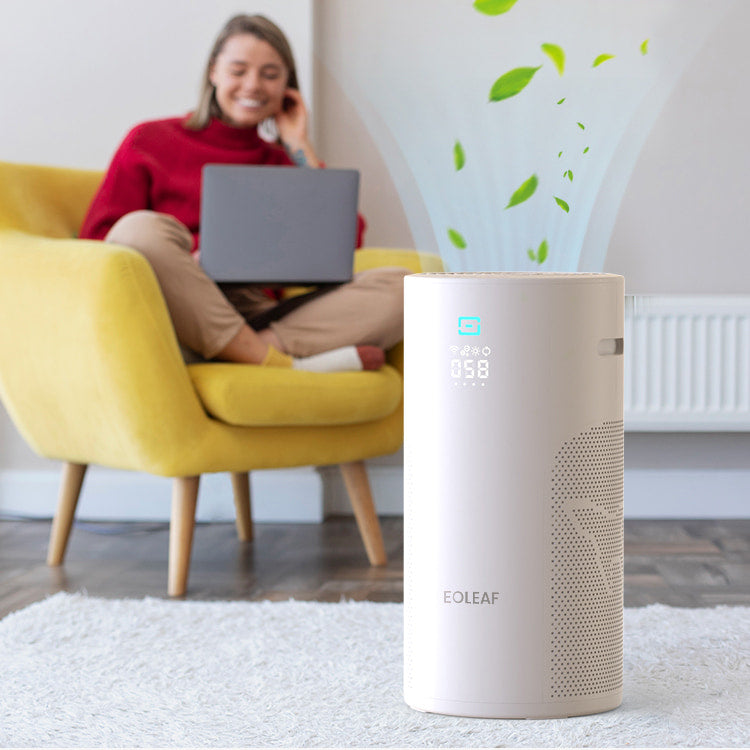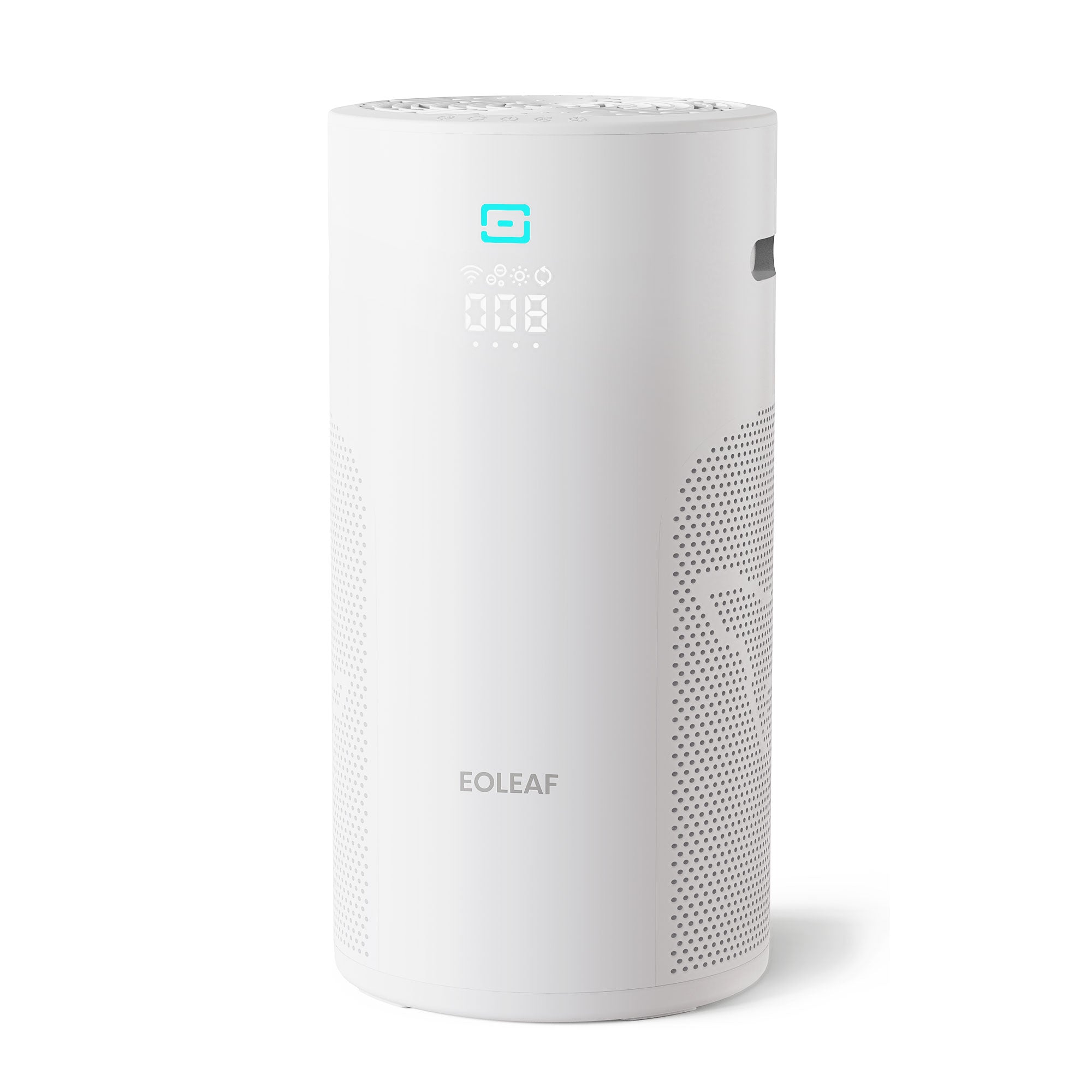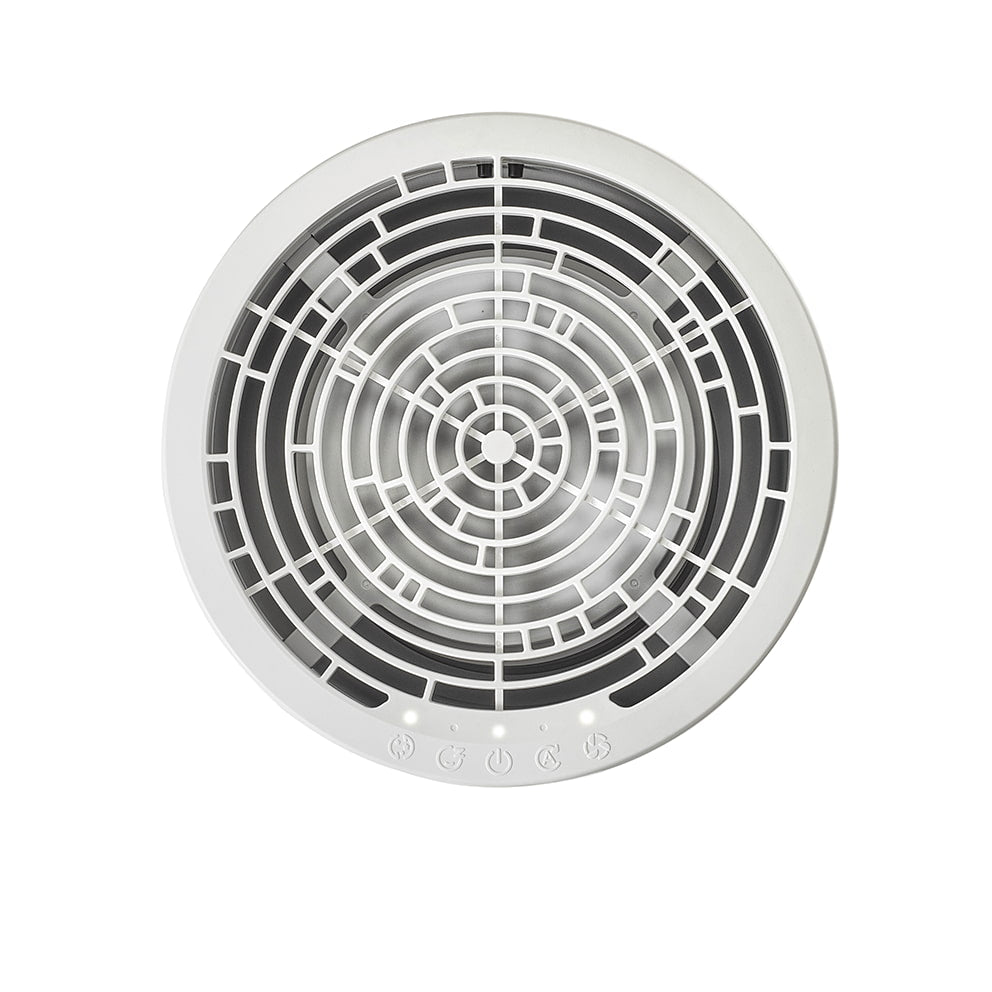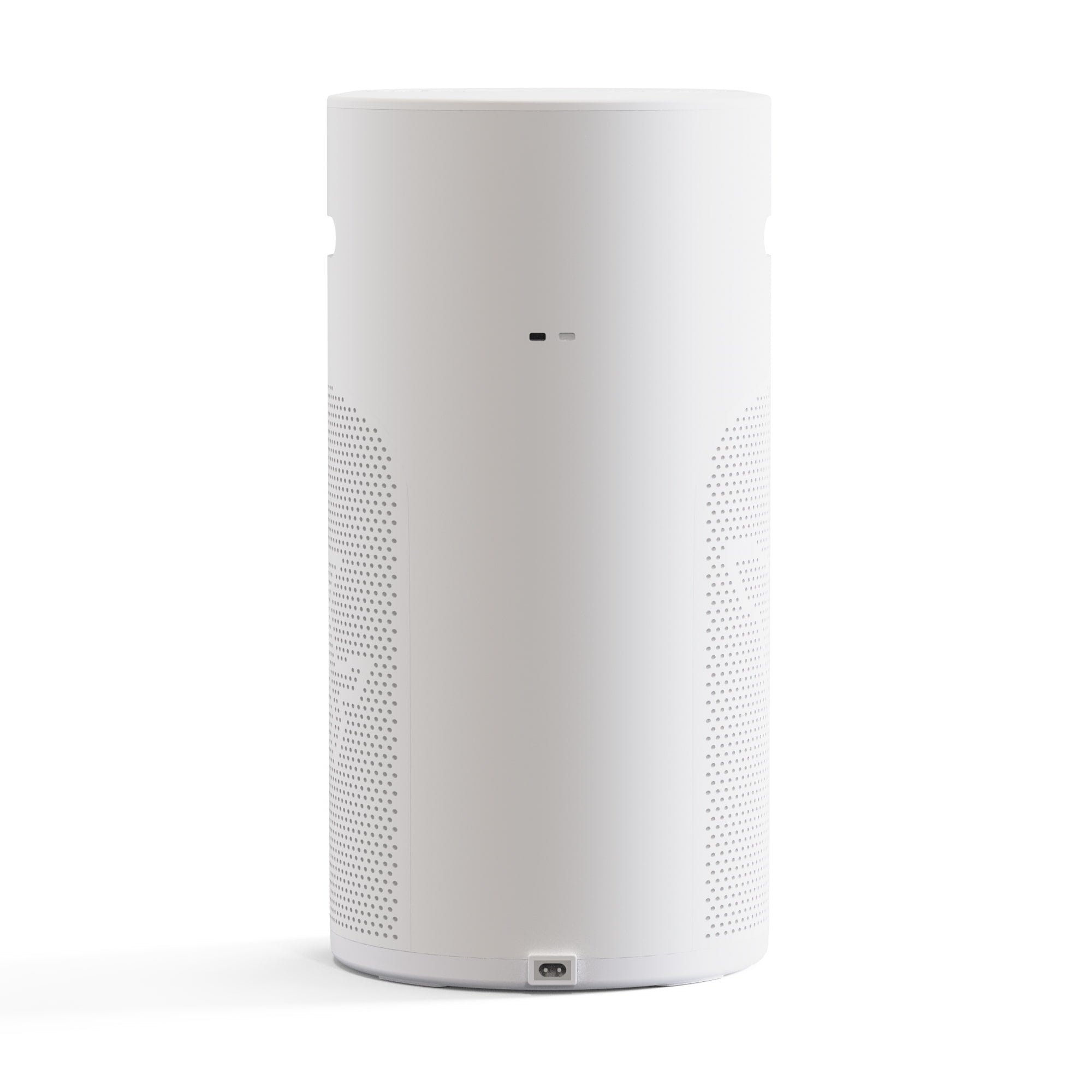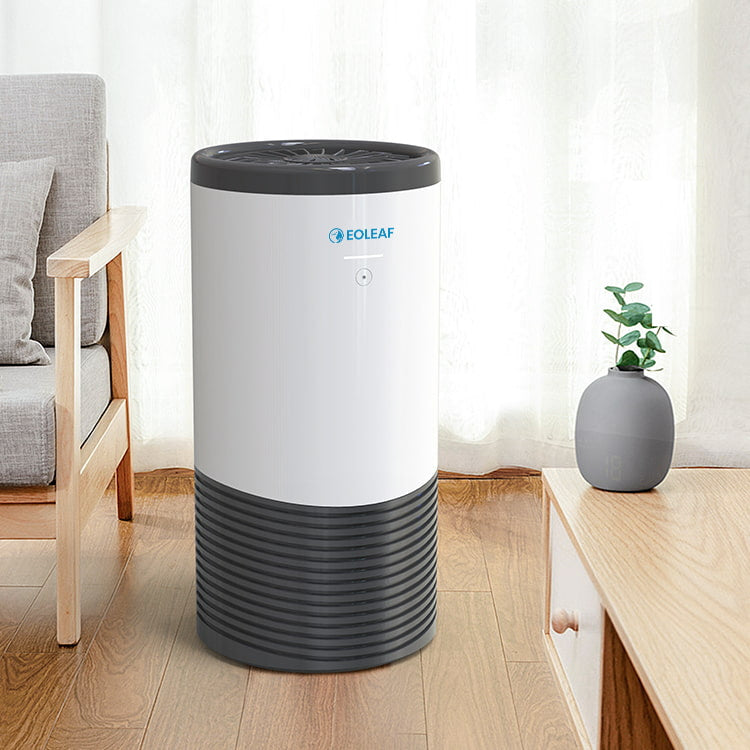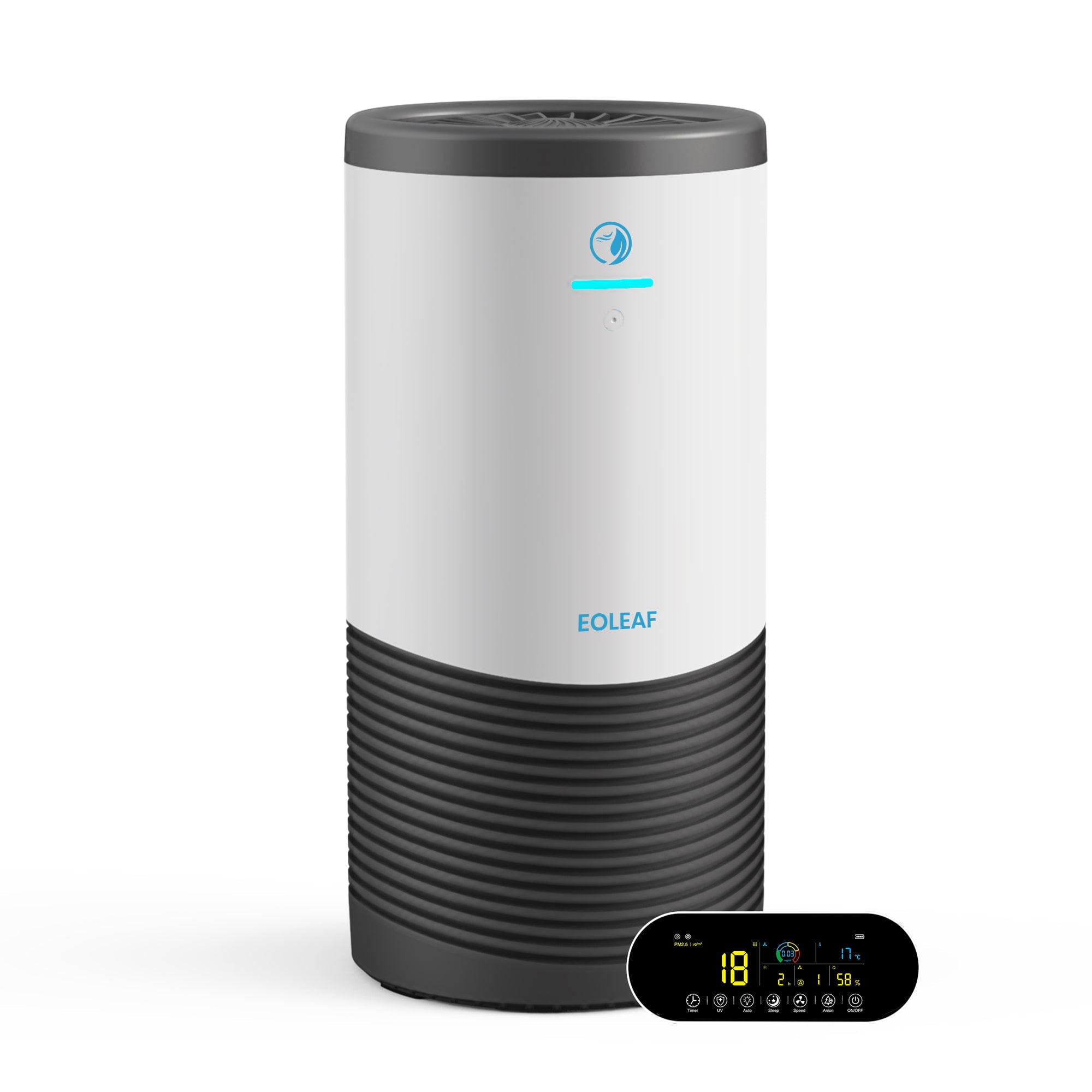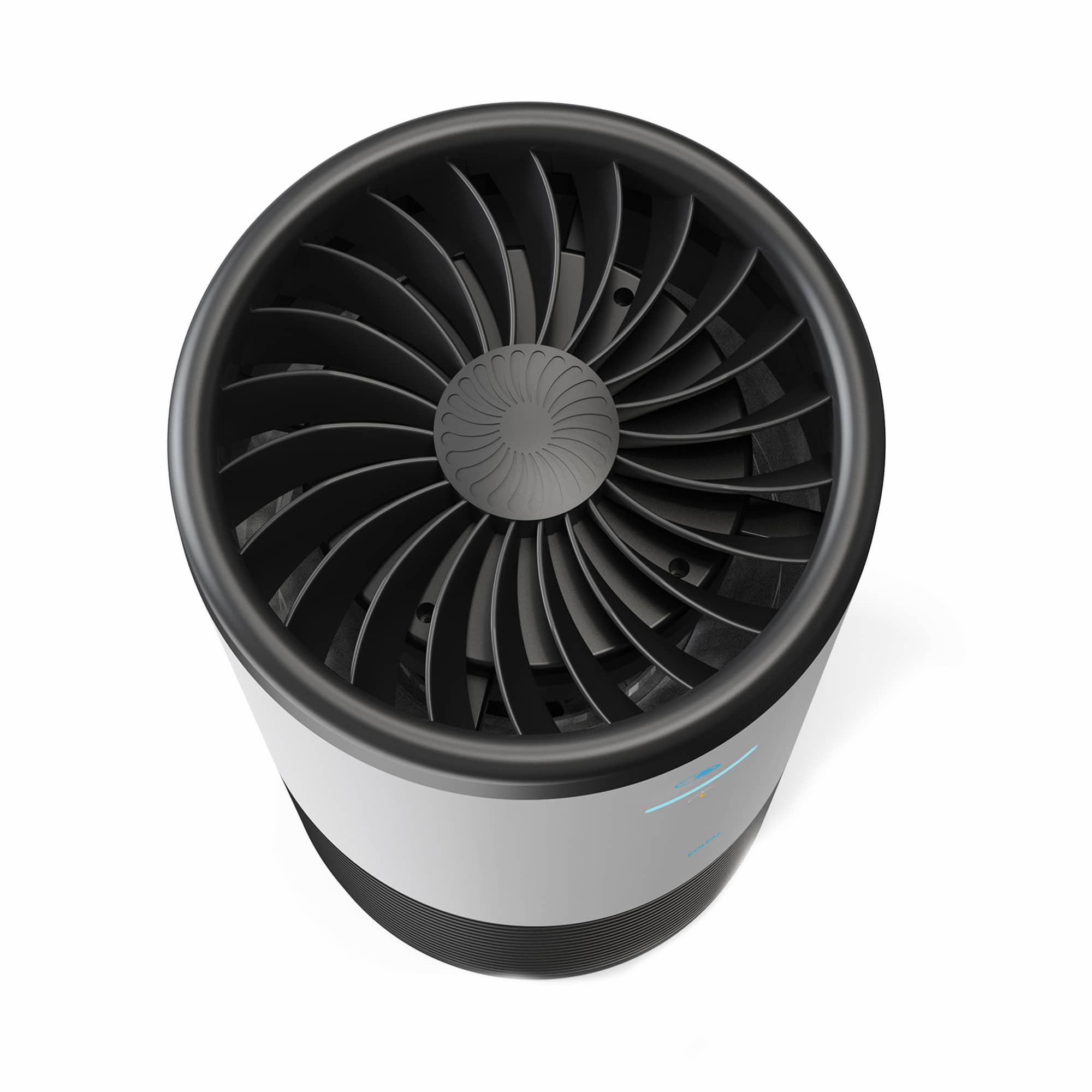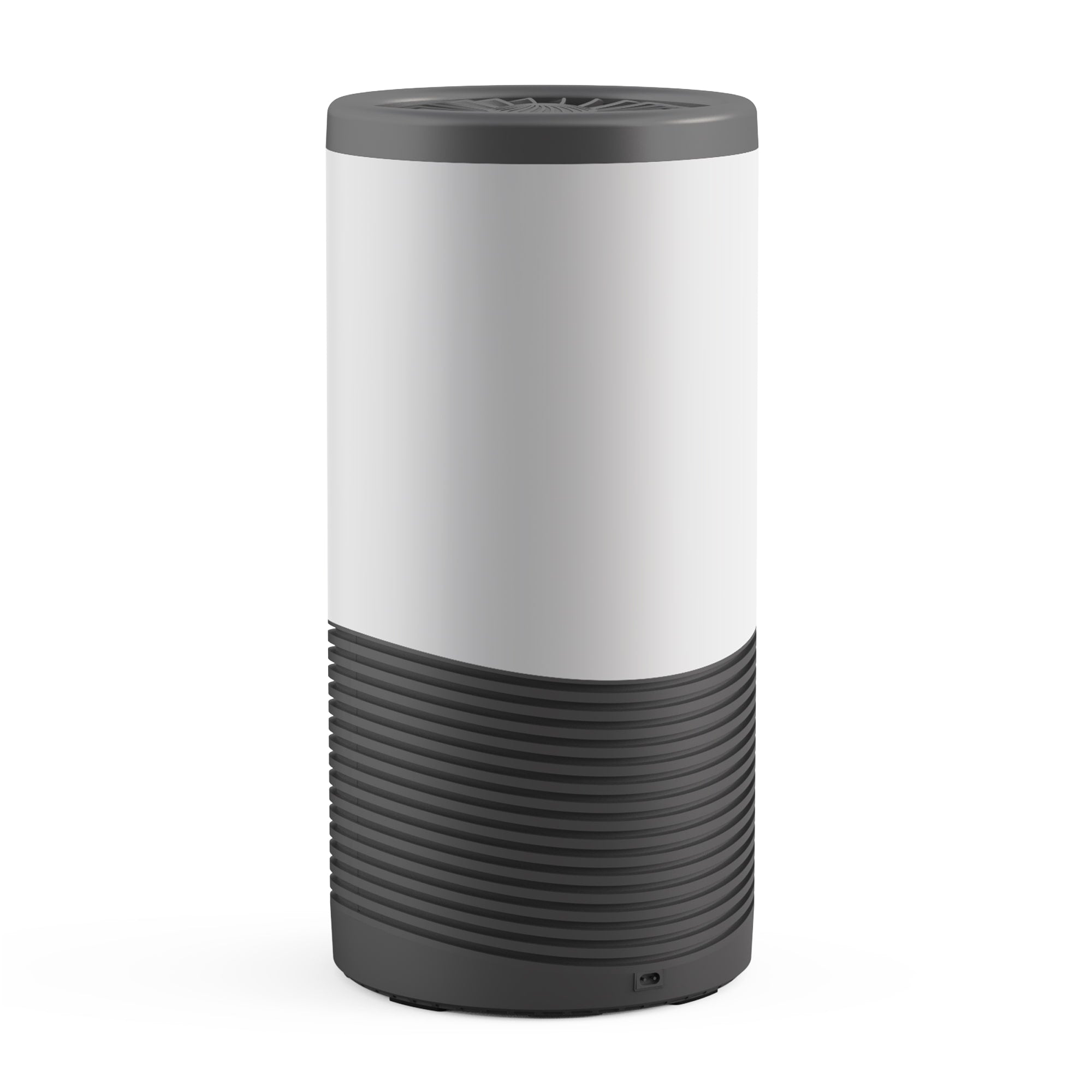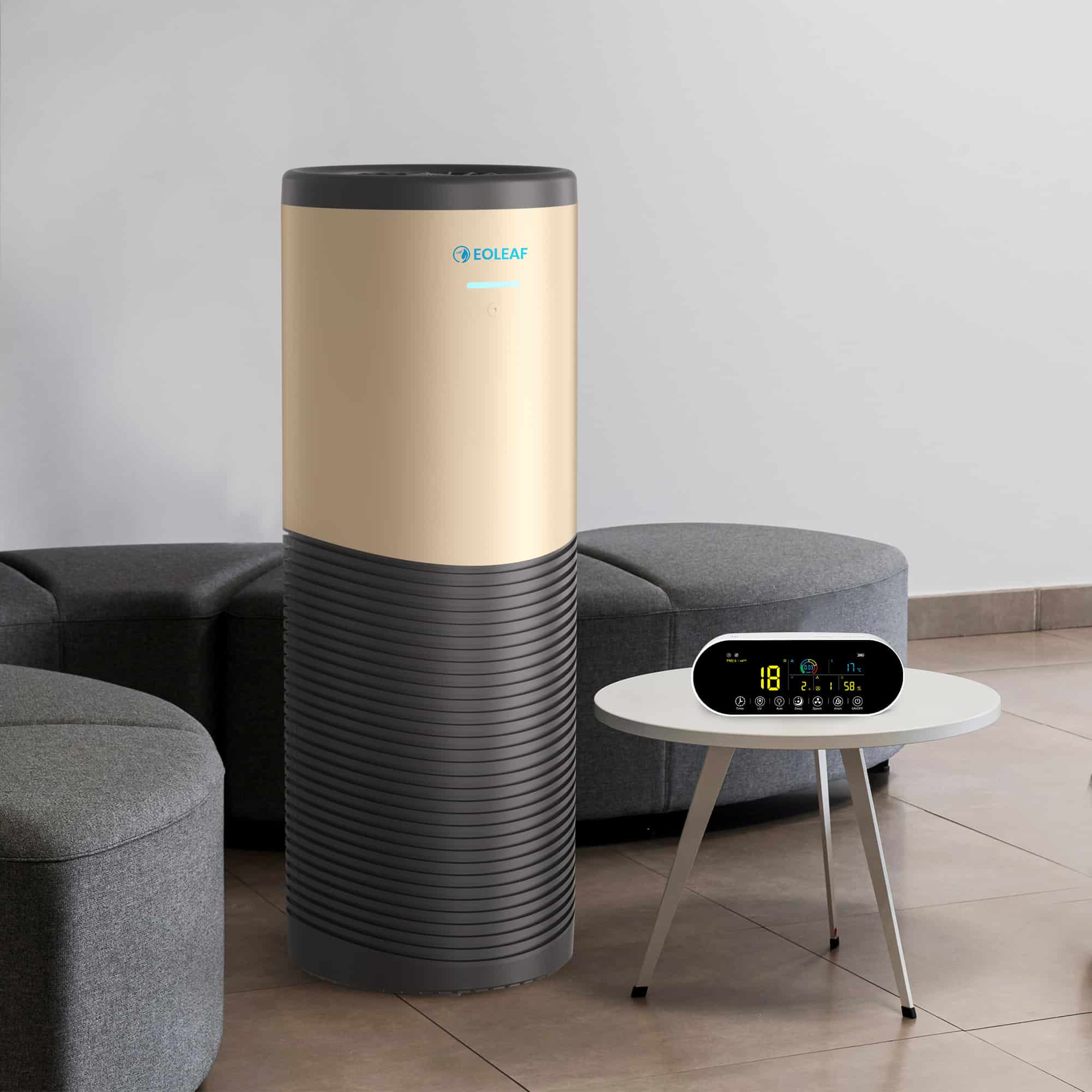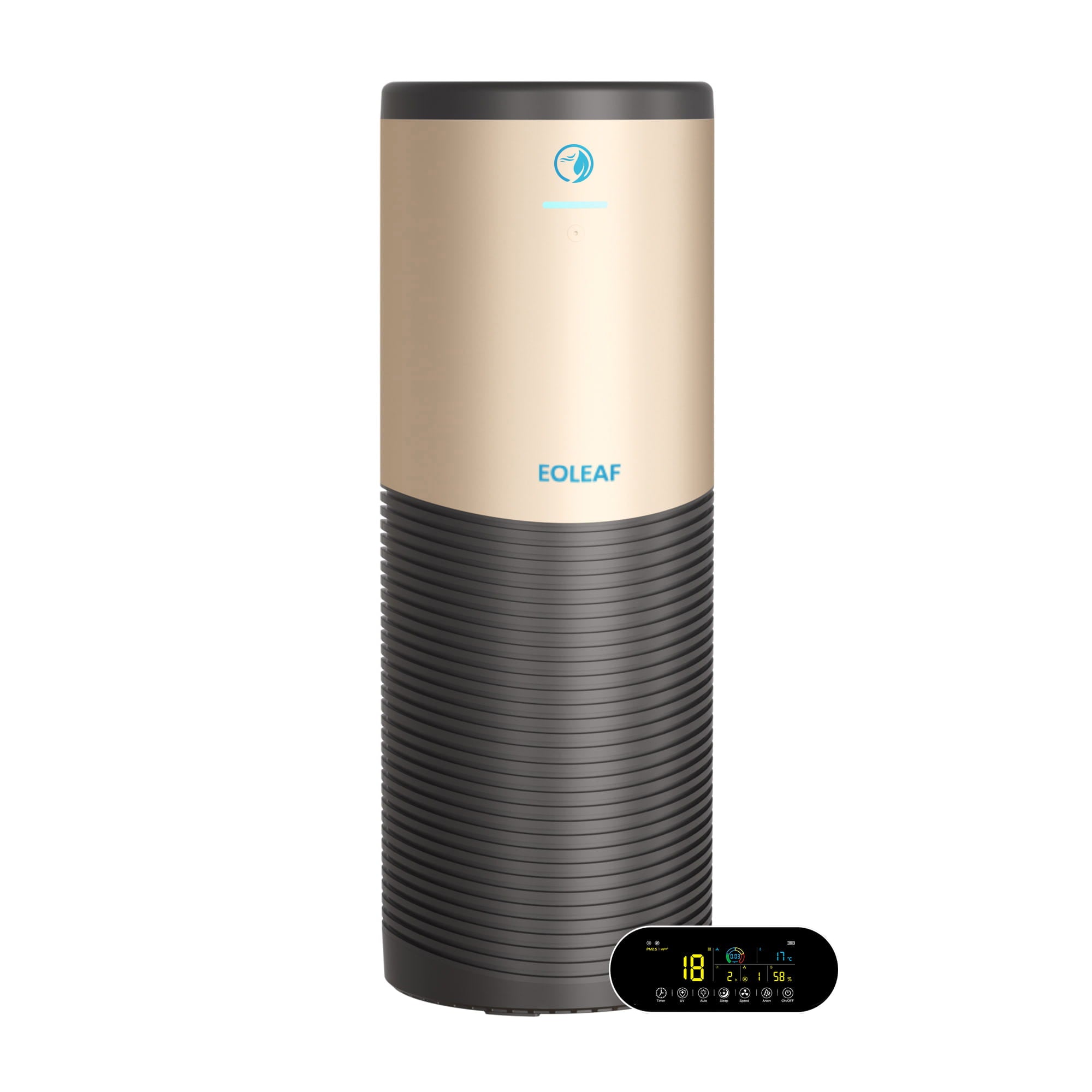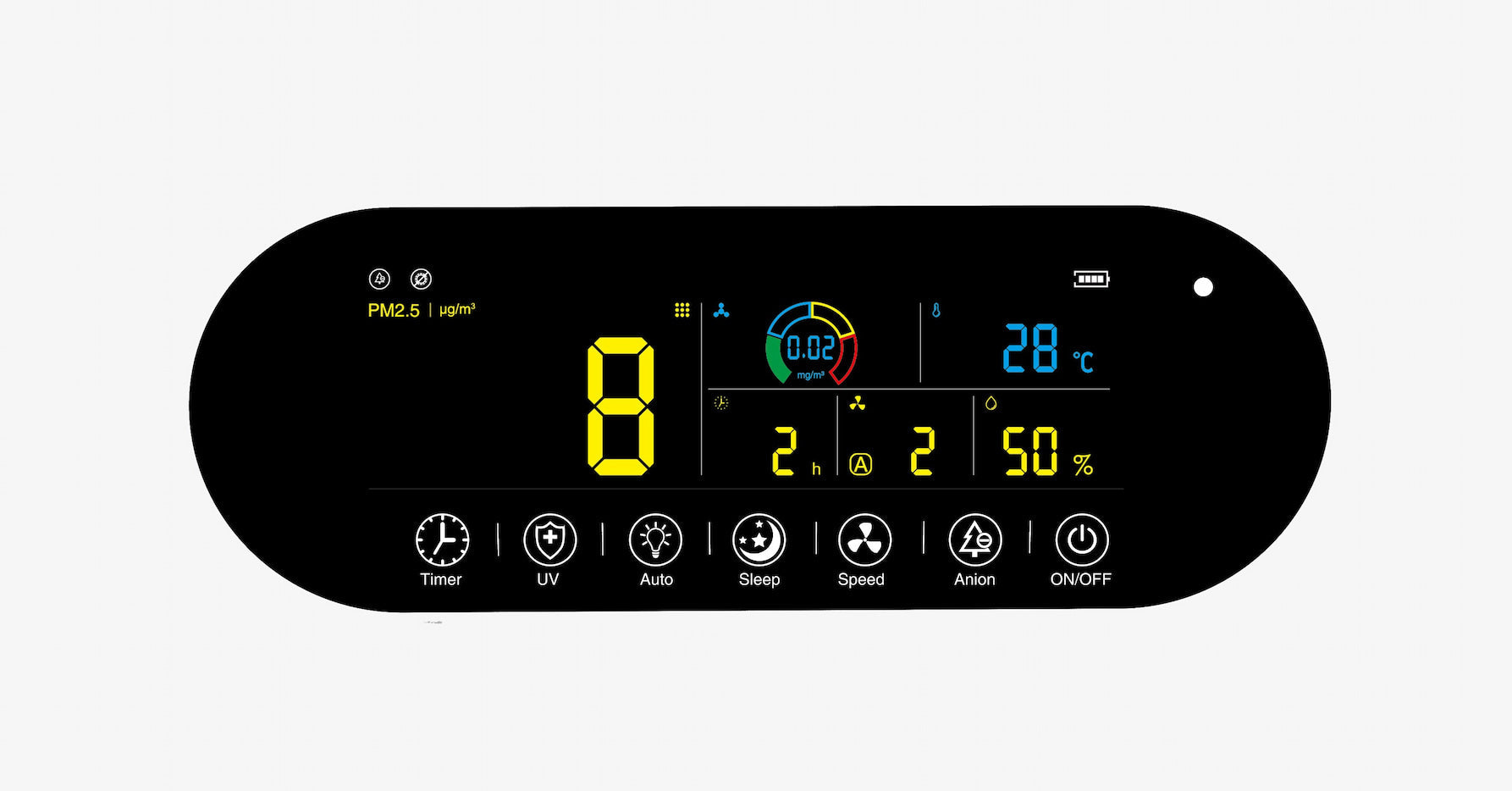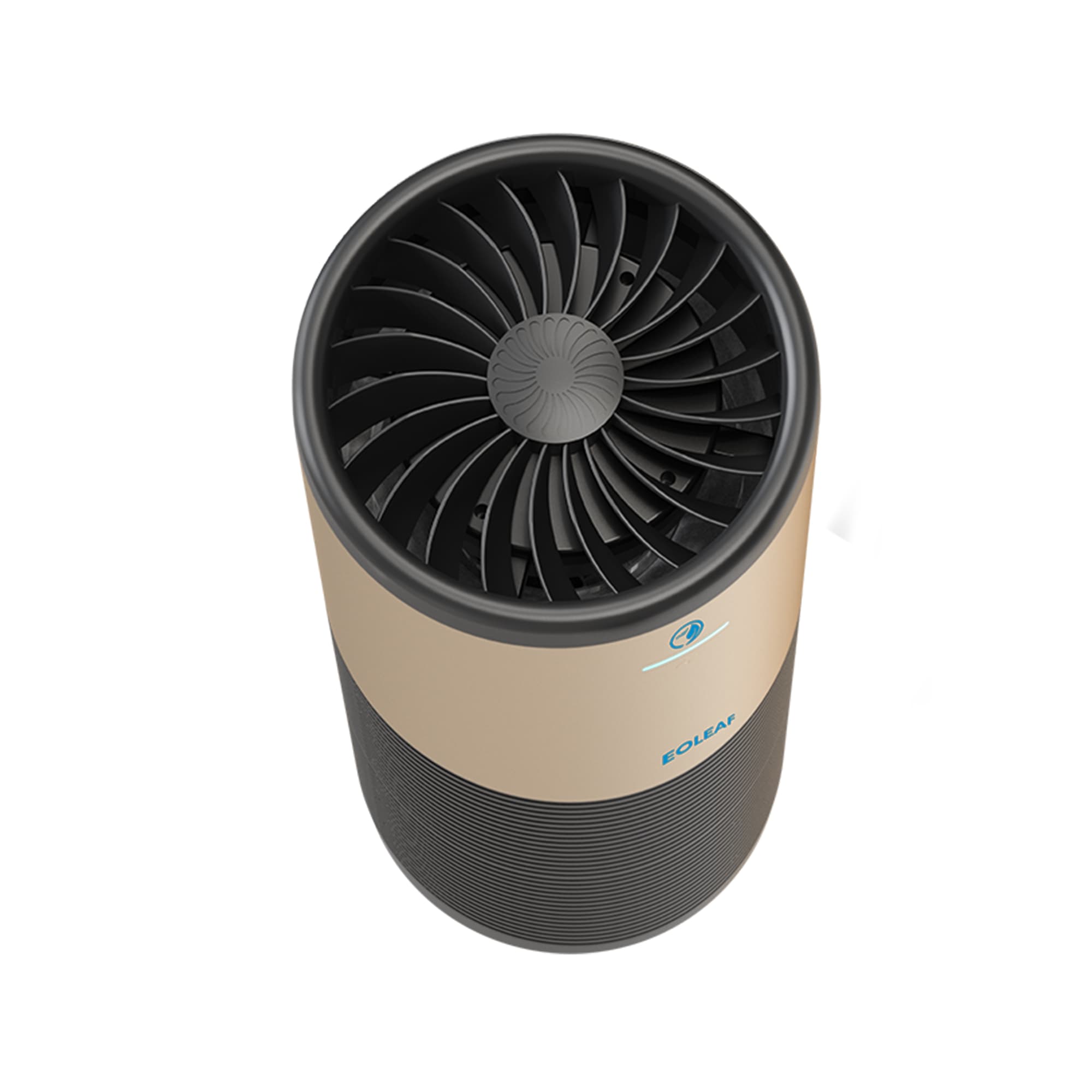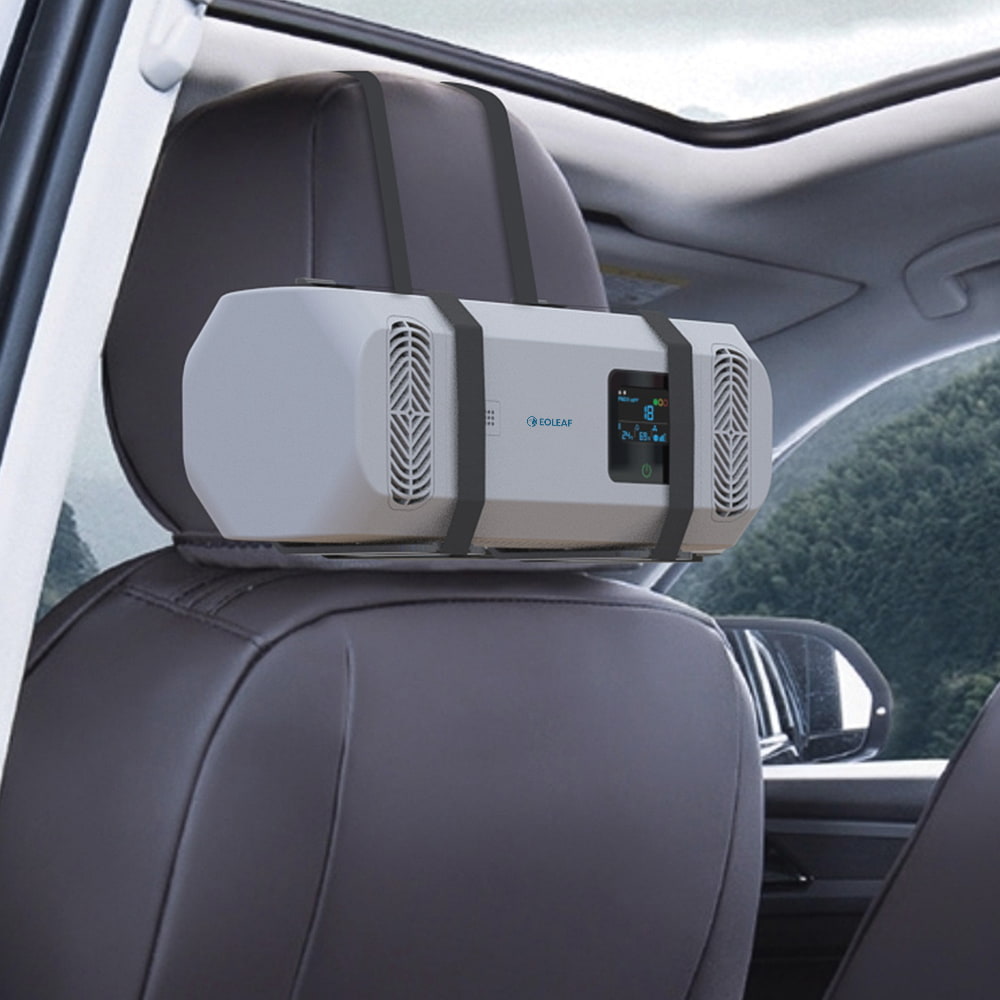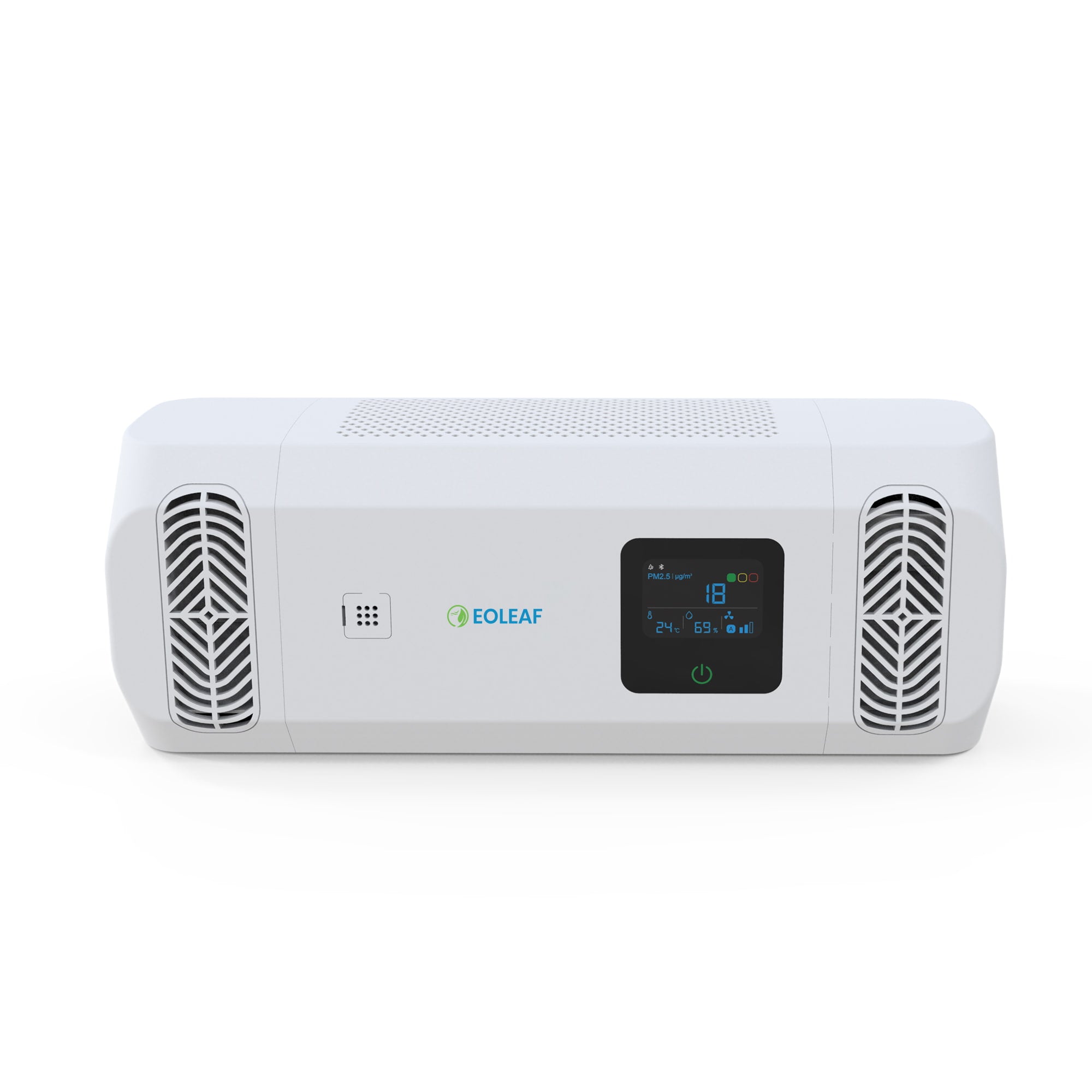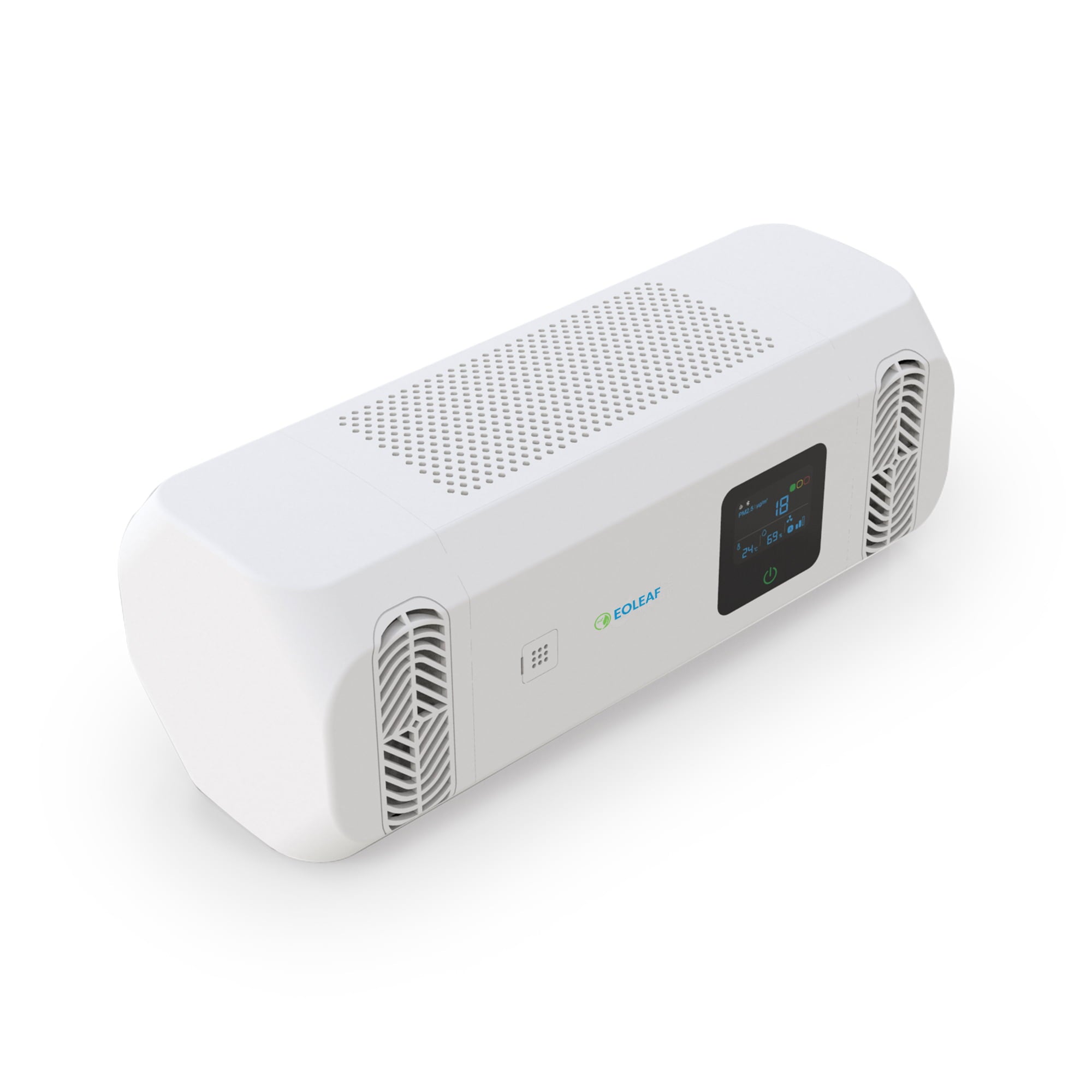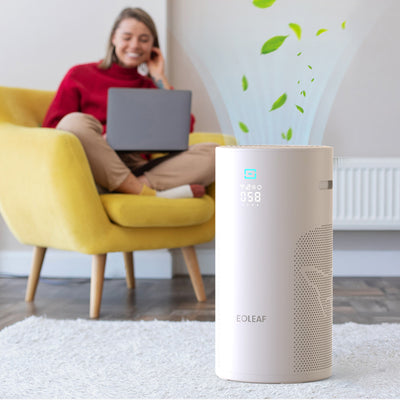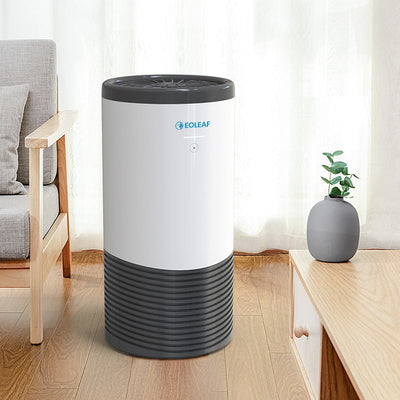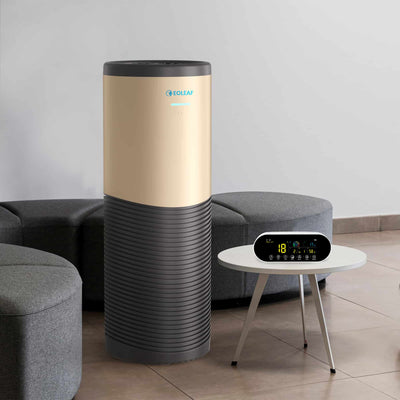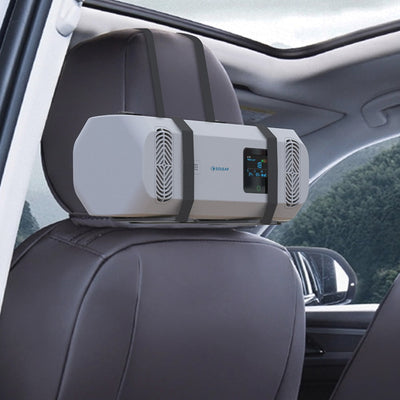Buying an air purifier for cigar smoke
Did you know that some premium cigars contain the same amount of tobacco as an entire pack of cigarettes1? Cigars are often viewed as more of a premium product and, as a result, are mistakenly believed to be less dangerous than cigarettes. Cigars contain a higher level of cancer-causing substances than cigarettes and, like all tobacco products, pose risks to those who are exposed to second-hand cigar smoke. Read on to learn about how an air purifier for cigar smoke and odours may protect you from the dangers of cigar smoke.

The dangers of tobacco: an overview
It is certainly not news that tobacco products pose health and environmental risks to anyone exposed, smokers and second-hand smokers alike. Here are some fast facts on tobacco smoke:
- Smoking causes over 8 million deaths per year on a global scale, 7 million of whom are smokers and 1.2 million of whom are second-hand smokers2
- Tobacco is the world’s leading cause of cancer and contributes to other diseases like stroke, heart disease, lung disease, diabetes, COPD, and more3
- Tobacco smoke contains 7000 chemicals, 70 of which are carcinogenic4
- Second-hand smoking increases lung cancer risk by 25% and breast cancer risk by 24%4
- Smoking deteriorates air quality by emitting 2.6 billion kilogrammes of carbon dioxide and 5.2 billion kilogrammes of methane per year (globally)5
- Cigarette butts make up 30 to 40% of all litter, generating 600,000 metric tonnes of waste per year (it is estimated that 47% of all cigarette butts are littered)6
Cigar smoke
Cigar consumption seems to be on the rise in many parts of the world. Cigars are largely consumed by males (although consumption of cigars by women is also on the rise), so many studies focus on the effects of cigar smoke on the male population.
What are the health risks of cigar smoke?
Like cigarette smoke, cigar smoke contains over 7000 chemicals including:
- Benzopyrene
- N-nitrosamine
- Polycyclic Aromatic Hydrocarbons (PAHs)
- Volatile organic compounds (VOCs)
- Chloroethylene
- Aldehydes
- Nickel
- Radioactive components4
Cigar smoking differs a bit from cigarette smoking in that many cigar smokers do not or only very slightly inhale cigar smoke. However, cigar smokers directly expose their mouths, lips, tongues, throats, and larynxes to harmful cigar smoke particles1. Although the lack of or minimised level of inhalation decreases the chances of certain types of cancer compared to cigarette smokers, oral, laryngeal, oesophageal, and other cancers of the lung and upper aerodigestive tract are increased in exclusively cigar smokers. However, those risks increase again if inhalation is increased. Studies have also found a link between cigar smoking and pancreatic cancer7,9.

Source 8
Due to the way that cigar tobacco is fermented, cigars contain higher levels of nitrosamines, a carcinogen, than cigarettes do. Cigars also contain more tar, another carcinogen, than cigarettes do. Furthermore, cigar wrappers are less porous than cigarette wrappers, causing a less controlled, more incomplete tobacco burning that creates a higher level of toxins and more odours than cigarettes1.
Cigars and indoor air quality
Studies have shown that smoking cigars in rooms indoors (homes, workplaces, etc.) contributes to far worse indoor air quality than cigarettes. As a result of their larger size, cigars take longer to smoke, increasing exposure time to users and second-hand smokers. As seen above, levels of cigar smoke measured in a room at a cigar party recorded more relative emissions of all types as compared to cigarettes. Smoking one cigar generates more Respirable Suspended Particles (RSPs) and Polycyclic Aromatic Hydrocarbons (PAHs) than one cigarette, but the biggest takeaway is that the levels of carbon monoxide generated by cigars at the cigar party were comparable to levels of carbon monoxide observed on a California freeway10.
Who is most at risk?
Anyone in direct contact with cigar smoke is at risk. This includes cigar smokers themselves and anyone who inhales cigar smoke. Like cigarette smoke, there is no safe level of indoor air exposure to cigar smoke, and everyone in all indoor spaces including rooms, homes, offices, schools, restaurants, and bars is at risk of adverse health impacts. Cigar odour is also likely to remain on surfaces for long periods of time, impacting future occupants of spaces where people smoke cigars.

Source 10
Adequate ventilation is essential in places where cigars are smoked. However, ventilation alone is often not enough to protect those exposed to cigar smoke and odours. One of the best ways to remove harmful indoor air pollutants generated from cigar smoke is to install a device that will detect them and remove them from your air. This is where Eoleaf air purifiers come in.
Benefits of Eoleaf’s air purifiers for cigar smoke and odours
Protect human health
Eoleaf air purifiers, equipped with 8 different air filtration technologies, capture and filter harmful particles that endanger human health. Our devices remove all three main types of air pollution that degrade indoor air quality: fine particle pollution (particulate matter like PM10, PM2.5, and PM0.1), chemical pollution (VOCs and airborne fumes), and biological pollution (allergens like dust, dust mites, pollen, pet hair and dander, and mould and spores).
Remove smoke fumes
Our 8-step air filtration method contains a High-Efficiency Particulate Air (HEPA)-certified filter. This filter is medical-grade, meaning that it removes 99.97% of all air pollutants down to a size of 0.01 microns in a single pass. Fumes and odours generated by cigar and cigarette smoke are quickly captured and filtered by Eoleaf air purifiers, safeguarding your lungs from inhalation in your home, office, and all other indoor spaces.
An air purifier should also contain an activated carbon filter to remove cigar odours and chemical pollution like VOCs and ozone. Eoleaf devices contain the aforementioned two steps and 6 more, each designed to tackle a specific type of indoor air pollution.
Remove unpleasant odours
Eoleaf’s activated carbon filter, one part of our 8-step system, also provides defence against smoke odours generated by cigar and tobacco smoke. In addition to smoke odours, activated carbon removes all kinds of airborne odours from the air: kitchen smells, bathroom odours, odours from mould, and more.

Factors to consider when choosing an air purifier for cigar smoke
Filtration type(s)
Not all filters are able to remove fine particles, fumes, and VOCs generated by cigar smoke. It is important to seek out a device with a comprehensive filtration system. This is why, as mentioned above, we emphasise multiple filters, each with the goal of combatting different pollutants, in order to combat all types of air pollution. Our devices filter out the following:
- Particulate matter (PM10, PM2.5, and PM0.1)
- Smoke (cigarette, cigar, cannabis, and wildfire)
- Pet hair and dander
- Dust and dust mites
- Mould and spores
- Gaseous pollutants and chemical pollution (ozone and volatile organic compounds or VOCs)
- Unpleasant odours (including odours generated by cigarettes and cigars)
High-quality devices on offer at Eoleaf ensure that you are getting the best filtration available for your indoor air, resulting in indoor air that is pollutant- and odour-free.
Room size compatibility
Before making your purchase of an air purifier for cigar smoke, if you have a model that interests you, be sure to check that it is capable of filtering all of the air in the room in which you plan to install it. A couple of metrics are useful in determining whether a device is powerful and efficient enough to do so:
- Clean Air Delivery Rate (CADR) – this is a value given that determines a device’s efficiency in cleaning the air in your space; the higher the value, the more effective the device
- Air Changes per Hour (ACH) – this refers to the amount of air that is completely replaced in a space within one hour; the industry standard recommends an ACH rating of 4 or 5 in order for the air in your space to be completely filtered
- This can be calculated by an Eoleaf sales representative using your specific room volume and needs
To read more about CADR, ACH, and other recommendations to consider before purchasing an air purifier for cigar smoke, refer to our in-depth Buying Guide. You are also welcome to reach out to our team of air purification experts with any questions you may have regarding your air purification needs.
Frequently asked questions
Will an air purifier get rid of cigar smoke?
An air purifier that is equipped with a HEPA-certified filter and an activated carbon filter will remove 99.97% of all air pollutants, including particulate matter and volatile organic compounds (VOCs) generated by cigar smoke, in a single pass. Additional filtration technologies like photocatalysis and ionisation are also beneficial in removing cigarette and cigar smoke.
How to filter cigar smoke in a room?
An air purifier is a great way to filter and remove cigar smoke from a room. Ensure that the air purifier contains HEPA-certified filters and not just ‘HEPA-type’ in order to ensure efficiency.
How do you neutralise cigar smoke?
Cigar smoke contains many types of pollutants, including fine particles (particulate matter), volatile organic compounds (VOCs), and heavy metals. In order to combat and neutralise the pollutants it generates, it’s important to use technologies that are designed to do so. HEPA-certified filters are effective at removing fine particles and activated carbon filters target VOCs and other chemical pollution. Other technologies like photocatalysis and ionisation also help neutralise cigar smoke.
How to ventilate a room for cigar smoking?
Manual ventilation should be performed multiple times per day by leaving windows and doors open for at least 20 minutes each time. However, it is worth noting that tobacco smoke also creates third-hand smoke, a residue that remains on surfaces long after a cigarette or cigar is put out. This residue lasts for up to a year even with regular cleaning becoming airborne once more when disturbed. This is where an air purifier comes in.
Can cigar smoke go through walls?
Cigar smoke cannot penetrate walls, but it can easily access other rooms through doors and windows. Installing an air purifier in rooms used by cigar smokers and/or in adjacent rooms helps protect other occupants.
Will my room smell if I smoke a cigar?
Yes. Tobacco smoke odours last for a long time in rooms with third-hand smoke remaining on surfaces for up to a year.
Resources
1 Cigar smoking and cancer. NCI. (n.d.). https://www.cancer.gov/about-cancer/causes-prevention/risk/tobacco/cigars-fact-sheet
2 Ritchie, H., & Roser, M. (2013, May 23). Smoking. Our World in Data. https://ourworldindata.org/smoking
3 Centers for Disease Control and Prevention. (2020, April 28). Health effects of smoking and tobacco use. Centers for Disease Control and Prevention. Retrieved January 18, 2023, from https://www.cdc.gov/tobacco/basic_information/health_effects/index.htm
4 Kim AS, Ko HJ, Kwon JH, Lee JM. Exposure to Secondhand Smoke and Risk of Cancer in Never Smokers: A Meta-Analysis of Epidemiologic Studies. Int J Environ Res Public Health. 2018 Sep 11;15(9):1981. doi: 10.3390/ijerph15091981. PMID: 30208628; PMCID: PMC6164459.
5 13 serious effects of cigarette smoking on environment and human health. Conserve Energy Future. (2023, November 16). https://www.conserve-energy-future.com/serious-effects-cigarette-smoking-environment-and-human-health.php#:~:text=6.,to%20the%20general%20atmospheric%20pollution
6 Tobacco and the environment. Truth Initiative. (2023, April 26). https://truthinitiative.org/research-resources/harmful-effects-tobacco/tobacco-and-environment
7 Chang CM, Corey CG, Rostron BL, Apelberg BJ. Systematic review of cigar smoking and all cause and smoking related mortality. BMC Public Health. 2015 Apr 24;15:390. doi: 10.1186/s12889-015-1617-5. PMID: 25907101; PMCID: PMC4408600.
8 Shanks, T. G., & Burns, D. M. (n.d.). Disease Consequences of Cigar Smoking. In Smoking and Tobacco Control Monograph (Vol. 9, pp. 105–160).
9 Iribarren, C., Tekawa, I. S., Sidney, S., & Friedman, G. D. (1999). Effect of cigar smoking on the risk of cardiovascular disease, chronic obstructive pulmonary disease, and cancer in men. New England Journal of Medicine, 340(23), 1773–1780. doi:10.1056/nejm199906103402301
10 Repace, J. L., Ott, W. R., & Klepeis, N. E. (n.d.). Indoor Air Pollution From Cigar Smoke. In Smoking and Tobacco Control Monograph (Vol. 9, pp. 161–179).
Eoleaf's range of air purifiers
NeoPur 400 air purifier
40 m² (450 sq ft) coverage area - Smart & Connected
TeraPur 600 air purifier
80 m² (850 sq ft) coverage area - Ultimate all-in-one
AltaPur 700 air purifier
120 m² (1300 sq ft) coverage area - Professional model
PurCar air purifier
HEPA H13 Filter & Ioniser - For all vehicles

